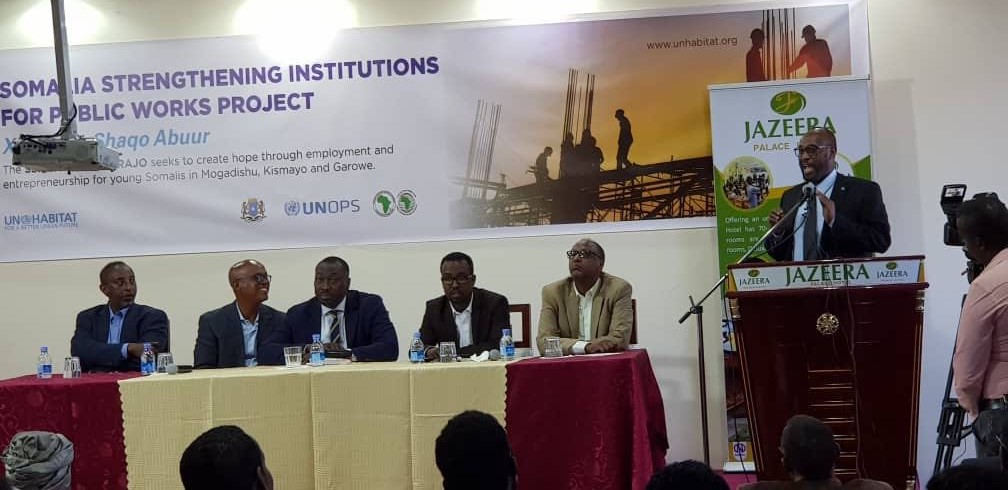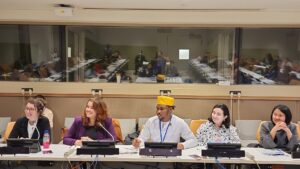
Somalia’s Federal Minister of Public Works, Reconstruction and Housing,Abdifatah Mahamed I. Geesay, addresses the launch of UN-Habitat’s youth training programme in Mogadishu
Mogadishu, Somalia, 16 August 2018 (Mogadishu, Somalia) – UN-Habitat has launched a new training programme for youth in Somalia named ‘Project Rajo’, after the Somali word for ‘hope’, Project Rajo will provide training for 400 young women and men aged between 15-35 years in construction, business, entrepreneurship and soft skills. It will be rolled out first in Garowe and Kismayo, followed by Mogadishu.
At the launch in Mogadishu, Somalia’s Federal Minister of Public Works, Reconstruction and Housing, Abdifatah Mahamed I. Geesay, (Barkhadle), said: “Somalia’s large youth population are eager to take charge of rebuilding the country and to contribute to peace and prosperity. Our Ministry must explore labour-intensive programmes to provide a more stable and sustainable income for youth. Skill-building training such as Project Rajo are key to the rebuilding of Somalia.”
Sharmaarke Abdullahi, Programme Management Officer for the Youth and Livelihood Unit at UN-Habitat, explained: “At UN-Habitat, we have a vision of a world where urban youth have better opportunities to thrive and reach their full potential. We are working to improve the livelihoods of these youth, especially those in conflict and post-conflict situations, by including them in the governance and socioeconomic life of their cities.”
The Ministry of Public Works, Reconstruction and Housing will act as the lead government stakeholder, working in partnership with UNOPS, UN-Habitat Youth Unit and Somalia Programme, as well as regional and state governments. The project is funded by the African Development Bank. UN-Habitat has been doing youth programmes in Somalia since 2014
Puntland’s Minister of Public Works, Housing and Transportation Abdirahman Jama Warsame, said: “With returning stability to the country, there is hope to empower a young and energised population to take charge in re-establishing an environment that promotes social cohesion, peace and foreign investment.”
The project which will last one year with the opportunity to renew will conclude with a Hackathon, enabling youth to collaboratively develop information and communications technology-based solutions for challenges identified in the construction sector. Participants will then attend a graduation ceremony and a half-day job fair with potential employers.
Ishaku Maitumbi, Head of UN-Habitat Programmes, Somalia Programme, says, “We are looking forward to working towards a positive vision for Somali cities, by uplifting youth and helping them assume leadership in generating businesses and entrepreneurship opportunities.”
Over 70% of the Somalia’s population is under the age of 30 and according to a UNDP report two thirds of 14 – 29 year olds are unemployed.


